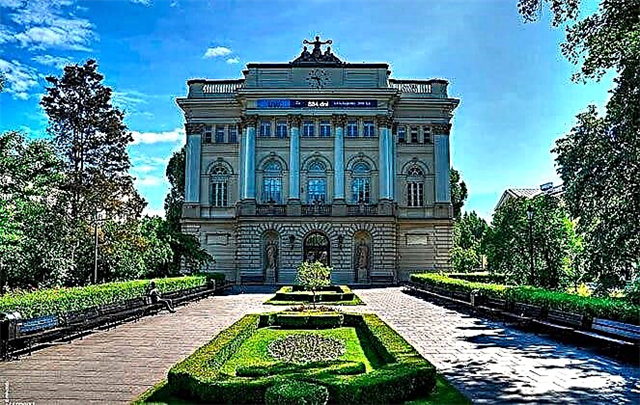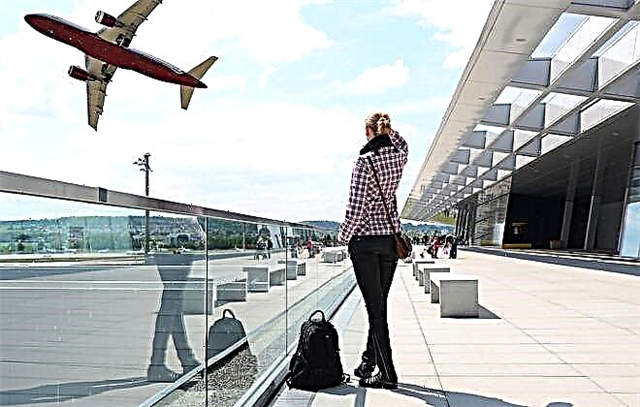Immigration to Montenegro today is a springboard for many migrants to the European Union. This state does not belong to either the Schengen zone or the EU, therefore the legalization rules are simpler here, and the requirements are not so strict. But besides the sea coast, beautiful landscapes and proximity to Europe, the immigrant should be more interested in such moments as the opportunity to find a job, receive a pension and medical care. All this needs to be studied at the planning stage.

Stages of the immigration process
Immigration is the entry into a particular state from the territory of another country for the purpose of permanent or temporary residence. The reason for immigration may be the desire to live in a more developed state with a stable economy, the search for successful employment, the desire to get a better education, and much more.
Moving to Montenegro or any other state for permanent residence involves going through certain stages of legalizing the status of a foreign citizen. Immigration begins with the search for a reason that gives the right to stay in the country for a long period of time. With it, it becomes possible to apply for a category D national visa.
Then the process looks like this:
- Obtaining a residence permit (residence permit) - provides the right to live in a new country for a long time, get a job, having previously received permission from the Employment Center (except for moving on the basis of family reunification). Issued for a specific period of time, requires constant renewal.
- Obtaining a permanent residence (permanent residence) - on its basis, a foreign citizen can live for an unlimited number of years. Does not require permanent residence in the country, equates the rights of a foreigner to those that local residents are endowed with (with some exceptions).
- Citizenship - full enjoyment of all rights and fulfillment of all duties assigned to citizens is confirmed by the issuance of a national passport.
Living standards in the Republic of Montenegro
Leaving to live in Montenegro today means getting the opportunity to live in the European Union tomorrow. The fact is that the issue of a state's accession to the EU is at the stage of discussion. And although the situation cannot be called unambiguous, and the result is obvious, the chances of a successful completion of the integration process are very high.
The country's authorities are making every effort to become part of the European community. This has a positive effect on the economy and living standards. The main source of income for the state is tourism, which brings more and more profits every year.
The standard of living in Montenegro is low when compared with other resort states:
The average salary is around 500 euros. A family of three will need at least 1,000 euros for a month. The minimum pension is equal to 122 euros, the average pension benefit reaches 285 euros.
 Buying your own home will cost about 1,750 euros per square meter in the center of the capital or 1,000 euros in a residential area. But in resort cities, housing is more expensive. For example, in Budva in the city center, one square meter of living space will cost 3,200 euros.
Buying your own home will cost about 1,750 euros per square meter in the center of the capital or 1,000 euros in a residential area. But in resort cities, housing is more expensive. For example, in Budva in the city center, one square meter of living space will cost 3,200 euros.
The country has a developed bus transport network. The railway requires large investments (due to the mountainous terrain, the construction of tunnels is required), which the state does not have at the moment.
Grounds for immigration
There are quite a few options on how to immigrate to Montenegro. At the same time, most of them are not financially burdensome and do not involve numerous bureaucratic procedures.
The following grounds are considered the most popular:
1.Conclusion of marriage with a citizen of the country. To obtain citizenship, you must be a resident for at least 5 years, 3 of which must be spent in matrimony. The spouse of a foreign person will have to show sufficient income to support the family and the availability of housing. If it is found that the marriage was fictitious, the migrant will not only be deprived of citizenship, but also the right to receive a new residence permit and permanent residence in the future.
2. Family reunification. It is usually applicable when the main candidate emigrates to Montenegro first, settles down, legalizes his status, and then his closest relatives follow. Children who are only relatives of one of the parents, adopted and born in a civil marriage union also have the right to a residence permit.
3. Residence permit for investments. Immigration to Montenegro in 2021 from Ukraine, Russia, Belarus and other CIS countries on this basis can have two scenarios:
- an investment in the economy of 500 thousand euros (the candidate expects an accelerated receipt of a residence permit and citizenship);
- purchase of real estate for any amount (it will be possible to obtain a residence permit for a period of a year, and then regularly renew it for the entire time the candidate remains the owner). The possibility of obtaining a simplified residence permit for the purchase of real estate has been in effect since 2021.
 Both options have advantages and disadvantages. The first greatly simplifies legalization, but it is unprofitable, since with such an amount of investment it is possible to settle in a more developed country.
Both options have advantages and disadvantages. The first greatly simplifies legalization, but it is unprofitable, since with such an amount of investment it is possible to settle in a more developed country.
The second provides a residence permit, but does not give the right to permanent residence. But you can buy an object cheaper than in other countries, and its maintenance translates into a small budget: for example, for a 4-room apartment you will have to spend no more than 60 euros every month in the summer and 100 euros in the winter.
4. Business immigration is one of the easiest ways to emigrate to Montenegro. There are no requirements for the size of the authorized capital, the direction of activity, the number of jobs created. All that is needed is to register a company. The only thing that can spoil such an ideal immigration is the inability to open a company if the number of residence permit quotas has run out.
If everything goes well, the residence permit will be issued for 1 year, after which it can be extended for another 12 months, and then receive permanent residence according to a simplified scheme. Opening a company in total will cost from 500 to 600 euros if we are talking about an LLC, and about 200 euros if registering an individual entrepreneur.
5. Employment. To be able to work, you first have to issue a work permit. It is valid for a year (if the work is temporary - 6 months) and then extended for another two. The company will preliminarily hold a competition among local residents, and if no one is found, it will hire a foreigner.
6. Getting an education. A residence permit is issued on the basis of an invitation from the university and confirmation of enrollment. The document will only be valid for 12 months. After each year of study, it must be prolonged. After graduation, you will need a different foundation to live in the country.
Refugees and those who come for medical treatment or research work can also obtain a residence permit.
How is immigration going
 Emigration to Montenegro from Russia begins with a national visa, which allows long-term residence in the country and is issued if there is a reason for moving. After crossing the border, within 24 hours, a foreign citizen must apply to the department of the Ministry of Internal Affairs at the place of registration with an application for a residence permit. This will be the beginning of the immigration process.
Emigration to Montenegro from Russia begins with a national visa, which allows long-term residence in the country and is issued if there is a reason for moving. After crossing the border, within 24 hours, a foreign citizen must apply to the department of the Ministry of Internal Affairs at the place of registration with an application for a residence permit. This will be the beginning of the immigration process.
How to get a residence permit
A residence permit in Montenegro is essentially a long-term visa permit.To get it, you need to prove to the local authorities that you have a reason to stay in the country for a long time.
You can choose one of the following:
- joining a local company or starting your own business;
- getting an education;
- participation in the student exchange program;
- advanced training or internship;
- family reunification;
- participation in a humanitarian program, etc.
The document that the migrant will receive is called "boravak" - a temporary residence permit. Relatives of a temporary resident (wife, children, parents) will also be able to receive a "boravak", but already under the family reunification program.
Issues a residence permit of the Ministry of Internal Affairs of the country and its representative offices in large cities: Herceg Novi, Podgorica, Tivat, Budva, Kotor, Bar.
The applicant can also apply for the first residence permit to the Montenegrin representation in his home country.
During the period when the decision on the issue of the "boravak" is made, the applicant cannot change the basis for migration. It is not recommended to do this even when the residence permit will be extended. This can lead to difficulties in calculating the length of stay in the country as a whole.
A residence permit is issued under the following conditions:
- the applicant has a valid foreign passport;
- he took out health insurance;
- can prove the existence of a place of residence;
- he did not violate immigration laws and was not prohibited from entering;
- he has enough money to live in Montenegro;
- he was not tried either in this state or in his homeland.
The application fee is 25 euros. Persons over 12 years of age undergo fingerprinting. An application for prolongation of a residence permit must be submitted one month before its expiration date.
Obtaining permanent residence
You can apply for permanent residence only after 5 years of residence in the country on the basis of a residence permit. Some categories of foreigners go through an accelerated procedure and apply after 3 years, for example, spouses of local citizens.
It is important that during this entire period, the candidate for the dozvola za stalni boravak (permanent residence permit) does not violate local laws and shows himself as a good citizen.
For those who are interested in how to move to Montenegro for permanent residence, you need to know that there is a more complicated process ahead than at the previous stage. But this status gives the owner more advantages:
- get a job at any position (except for government posts);
- join trade unions;
- enjoy tax incentives;
- receive social assistance;
- count on retirement benefits.
In other words, the difference between citizens of the country and holders of permanent residence is minimal. But in order to get it, several conditions must be met:
- permanently reside in Montenegro for 5 years;
- pay taxes on time;
- stay abroad for no more than 10 months in a five-year period of time, or no more than 6 months in one trip;
- be married to a citizen of the country for at least three years;
- a minor child living with one of the parents holding a residence permit must also have temporary resident status and the second parent's permission to stay abroad;
- in the absence of other grounds - to be a relative of a citizen of this state or a refugee, to have Montenegrin roots.
It is impossible to obtain permanent residence if the applicant lived in a country with a residence permit issued on the basis of university studies, purchase of real estate, medical treatment, seasonal work or a business trip.
The cost of applying for permanent residence is 25 euros.
Citizenship
 You can apply for civil status no earlier than after 5 years of residence in the state on the basis of permanent residence. To obtain Montenegrin citizenship, you will have to give up your previous citizenship. There are several ways to gain status:
You can apply for civil status no earlier than after 5 years of residence in the state on the basis of permanent residence. To obtain Montenegrin citizenship, you will have to give up your previous citizenship. There are several ways to gain status:
- born in the country;
- by the right of blood;
- on the basis of treaties of an international format (applies to former citizens of Yugoslavia);
- by naturalization.
The total number of years lived in the country must be at least 10, for spouses of Montenegrin citizens - at least 5 years. A prerequisite is knowledge of the state language. Minor children acquire citizenship together with their parents.
The Ministry of Internal Affairs of the country deals with the request. This takes at least a year.
After the decision is made, it is necessary to obtain a national passport within six months, having paid 25 euros of the state duty and 15 euros for its production.
Every 10 years the passport will have to be changed to a new one. This rule applies to all citizens of the state.
What documents will be needed
An important question is the package of documents. It needs to be cooked very carefully. The speed of decision making and the outcome of the whole case will depend on this.
So, at the first stage, when applying for a residence permit, you will need:
- Foreign passport with copies of all its pages.
- Registration at the place of residence.
- Certificate from the bank about the availability of money in the account - 3,650 euros per month for the main applicant and another 1,000 euros for each family member.
- Certificate stating that the applicant has no criminal record.
- Medical insurance.
- A document confirming the availability of housing (own or rented).
- Marriage and birth certificates for each of the children.
- Health certificate for each family member.
- Confirmation of the grounds for migration - a work permit, an invitation from a university, a contract for the sale and purchase of real estate, a certificate of company registration, etc.
When applying for permanent residence, a previously issued residence permit must be attached to the package of documents.
But when requesting citizenship, you will also have to attach a certificate from the police, which will confirm the fact of permanent residence in the country, and a document from the country of previous citizenship on leaving the ranks of its citizens.
How much does it cost to process and process applications?
 The decision to issue a residence permit and permanent residence will be made within a month. That is why you need to apply for the assignment of these statuses or their renewal no later than one month before the expiration of the document.
The decision to issue a residence permit and permanent residence will be made within a month. That is why you need to apply for the assignment of these statuses or their renewal no later than one month before the expiration of the document.
Citizenship applications will be considered within a year. This is due to a large number of documentary checks.
As for the period of validity of the documents themselves, the residence permit is usually issued for a year, after which it must be renewed annually for 5 years.
Prolongation of permanent residence is carried out after 5 years. If you intend to obtain citizenship, then instead you can apply to the Ministry of Internal Affairs for the assignment of civil status, which no longer has a validity period.
The cost of processing each of the documents is 25 euros. Renewal - 70 euros.
Why can you get rejected?
The commission for consideration of requests from foreigners does not always make a positive decision. Sometimes migrants in Montenegro receive a refusal, the reason for which may be:
- violation of the laws of the country, entailing criminal punishment;
- actions that threaten the life and well-being of local residents;
- providing false information;
- forgery of documents;
- lack of insurance;
- insufficient income;
- the presence of a residence permit, which does not give the right to further legalization in the country.
To obtain citizenship, you also need to pass an examination for proficiency in the state language and pass an interview at the Ministry of Internal Affairs. If the candidate arouses any suspicion among the representatives of the state, this could have a detrimental effect on the outcome of the case.
Where is better to settle
Despite the fact that Montenegro occupies a small area (13 812 square kilometers), you can find a wide variety of climatic conditions and landscapes here. Russian settlers most often choose the Adriatic coast.
We will present the main features of settlements in a short overview:
- Most of the Russian diaspora is concentrated in Budva. There are Russian schools, kindergartens and other institutions for the Russian-speaking population of Montenegro.Despite the fact that the city is a resort, life here does not stop even in winter.
- There are also many Russians in Bar, as well as a well-developed infrastructure, a port and an azure sea. There are not very many tourists in this area, but those who wish can take a ferry to Italy for a day or two.
- Podgorica is suitable for those who do not fundamentally live by the sea. The Montenegrin capital is the most populous city in the country. Only here you can find higher educational institutions and large shopping centers. The plus is that even if you want to see the sea, it's only an hour's drive from here.
- According to migrants, Tivat is one of the most comfortable places to live. It is compact, with an embankment, a park, and walking areas. The city is not subject to such a strong invasion of tourists as Budva or Petrovce, and therefore it is relatively calm and quiet here.
- Kotor attracts tourists from Europe with its picturesque bay, clear sea, proximity to the airport. But if you live here permanently, you will notice an underdeveloped infrastructure, high humidity.
Outcomes
When planning a move to Montenegro, it will be useful to visit the country with a sightseeing visit in order to experience the peculiarities of local life and choose a place to live. Do not forget what are the pros and cons of this state:
| Advantages | disadvantages |
|---|---|
| proximity to the sea, beautiful landscapes, varied nature; the ability to choose a suitable climate; lack of a long winter; proximity to Europe; the prospect of joining the EU; inexpensive housing; low cost of food and other living expenses; the possibility of obtaining a residence permit for the purchase of real estate of any price category; simple legalization procedure. | low standard of living in the country as a whole; poorly developed transport network; high levels of humidity in winter; lack of central heating; peculiarities of the mentality of local residents, which bears little resemblance to the European one (they are not too sensitive to cleanliness, they smoke a lot); bureaucratic approach to paperwork; small selection of goods and services; smog over cities due to burning firewood during the heating season; lack of rating universities; difficulties in finding a job due to competition with local residents; low wages. |











